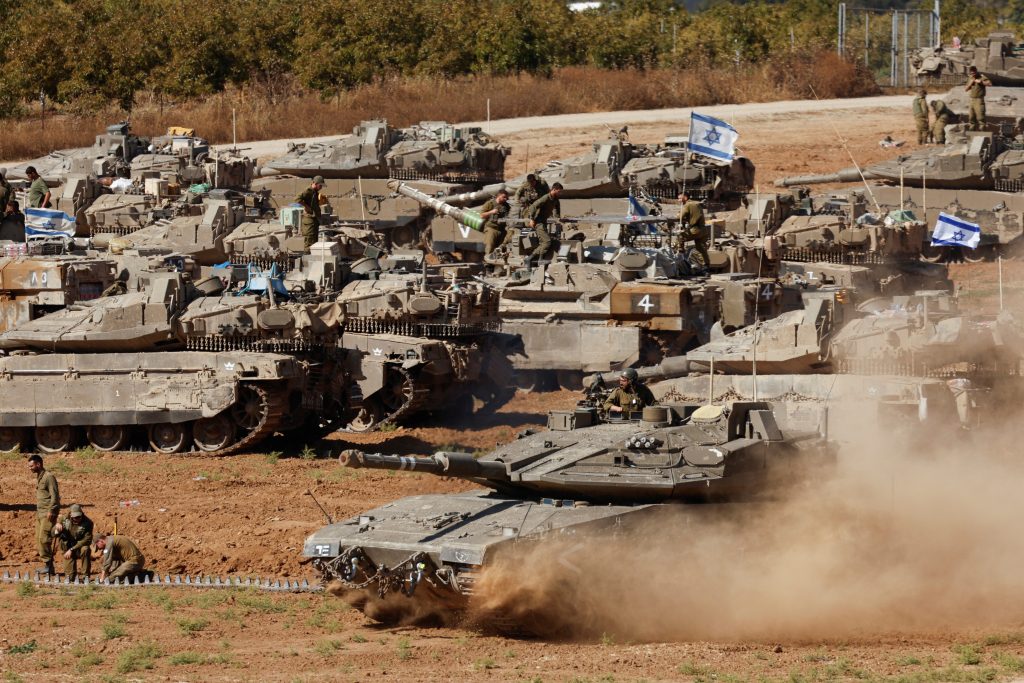On Wednesday, Israel sent tanks on incursions into Rafah, stating that the conflict in Gaza might extend until the year’s end. This declaration came after the US assured that the raid did not equate to a major ground operation, which would alter US policy.
Tuesday saw Israeli tanks pushing into central Rafah for the first time, defying an International Court of Justice order to cease attacks on the city, now a sanctuary for many Palestinians amid widespread bombings.
Residents reported tanks entering Tel Al-Sultan in western Rafah, Yibna, and near Shaboura in the centre, before pulling back to a buffer zone on the Egyptian border, rather than establishing a permanent presence as seen in other areas.
Israel declared it now controlled three-quarters of the buffer zone on the Egyptian border, aiming to control all of it to curb weapon smuggling. Palestinian Health Minister Majed Abu Ramadan noted that there was no indication the Rafah border crossing would reopen for aid soon.

Prime Minister Benjamin Netanyahu’s National Security Advisor, Tzachi Hanegbi, suggested that the conflict in Gaza would continue throughout 2024, indicating Israel’s unwillingness to end the hostilities. “The fighting in Rafah is not a pointless war,” Hanegbi asserted.
The United States, Israel’s closest ally, reiterated its opposition to a significant Israeli ground offensive in Rafah on Tuesday, maintaining that such an operation was not currently underway.
Qatar, acting as a mediator, was expected to relay Israel’s latest ceasefire and hostage release proposal to the Palestinian resistance group, Hamas, on Tuesday. However, the group declared that negotiations were futile unless Israel ceased its offensive on Rafah.
The armed wing of the Palestinian resistance group, Hamas, and its allies claimed to have confronted the invading forces in Rafah with anti-tank rockets and mortar bombs, detonating explosive devices they had planted. The Israeli military reported that three soldiers were killed and three others seriously wounded by an explosive device in a Rafah building, as per public broadcaster Kan radio.
Palestinian health officials reported several injuries from an Israeli fire in eastern Rafah, with aid stores set ablaze. Residents described overnight bombardments that destroyed numerous homes, prompting mass evacuations following Israeli orders.
Internet and mobile signals were reported down in parts of both east and west Rafah during the Israeli attack. Some residents reportedly observed unmanned robotic armoured vehicles firing machine guns in parts of the city.
The UN agency for Palestinian refugees (UNRWA) reported that around a million Palestinians who had taken refuge in Rafah from Israeli offensives elsewhere have now fled following Israeli evacuation orders.
The World Court demanded Israel explain how it would ensure the safety and provide essential supplies to Rafah evacuees. Its ruling also called for the immediate and unconditional release of all hostages taken from Israel on 7 October.
The Palestine Red Crescent Society (PRCS) reported evacuating its medical teams from its field hospital in the Al-Mawasi area, a designated civilian evacuation zone, due to ongoing bombardments.
Gaza’s Health Ministry stated that more than 36,000 people have been killed in Israel’s Gaza offensive. Malnutrition is widespread as aid deliveries have dwindled, with aid agencies accusing Israel of obstructing their efforts, while Israel blames the agencies. Additionally, an aid pier set up by the US military off Gaza’s coast was rendered inoperative after part of it broke off, likely due to bad weather, according to two US officials.


